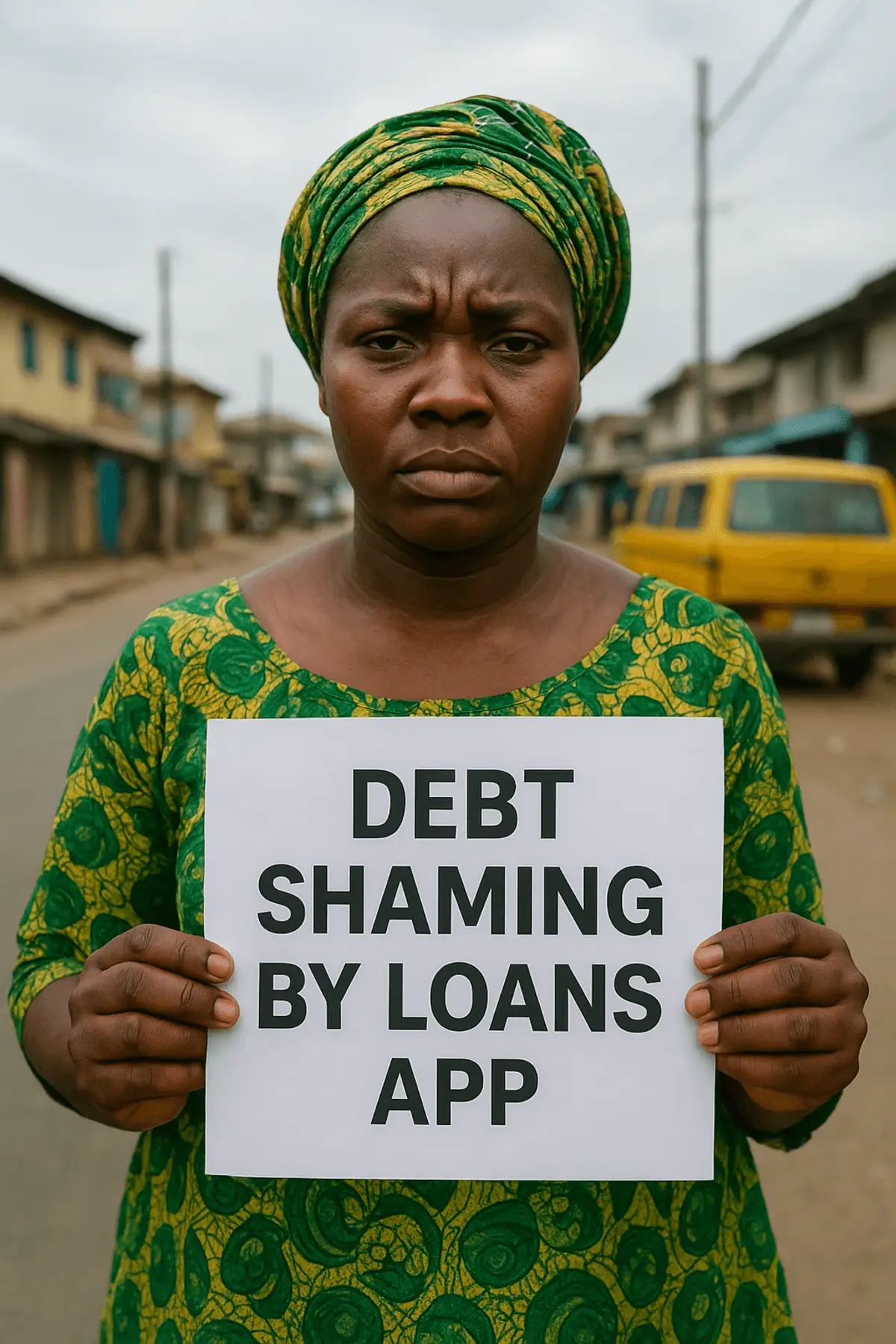When Chiamaka, a 27-year-old fashion designer in Lagos, downloaded a popular rogue digital loan app, she thought it was the lifeline she needed to cover her rent. The app offered her ₦30,000 with a repayment period of 14 days. She would have to return nearly ₦45,000 after fees and interest. “It seemed unfair, but I didn’t have a choice,” she recalls.
Two weeks later, when she could not pay on time, her phone started buzzing. Dozens of calls and text messages came daily, not just to her, but also to her family, friends and even customers. “They called me a thief. They said I was trying to run away with their money. They even told my pastor that I was a fraud,” she says. “It was humiliating. I cried for days.”
Chiamaka is one of many Nigerians caught in the web of rogue digital loan apps that use aggressive tactics to recover debts. Borrowers describe the harassment as “debt-shaming”: a practice where lenders contact the borrower’s phone contacts and send defamatory messages in a bid to force repayment.
Table of Contents
Rogue Digital Loan Apps: A growing crisis
Nigeria’s rising inflation, high unemployment and limited access to bank loans have created a fertile ground for the expansion of online lending platforms. Millions of Nigerians, particularly young people and small business owners, turn to these apps for quick cash. But many of these rogue digital loan apps are unlicensed and operate outside the rules set by the Central Bank of Nigeria (CBN).
The Federal Competition and Consumer Protection Commission (FCCPC) estimates that over 200 loan apps currently operate in Nigeria, but only a fraction are licensed. In 2022, regulators forced Google to delist 18 rogue apps from the Play Store, yet by mid-2023, dozens of new ones had resurfaced under different names.
According to FCCPC data, over 60% of consumer complaints filed in 2023 were related to digital lending apps. Many involved debt-shaming, harassment, and data privacy violations.
“It is psychological warfare,” says Adebayo, a digital rights advocate in Abuja. “We’ve received reports of people losing jobs or even attempting suicide after being labelled fraudsters by loan apps.”
Weak Regulation
The Nigerian government has attempted crackdowns. In 2022, the FCCPC, working with the Central Bank of Nigeria (CBN) and the Nigerian Communications Commission (NCC), launched a joint task force to regulate digital lenders.
Google and Apple were directed to only host loan apps with approvals from the FCCPC, and telcos were asked to block shortcodes of rogue digital loan ap. But experts say enforcement has been inconsistent.
“The apps shut down today and reappear tomorrow under a new name,” says financial analyst, Adeola. “It’s a cat-and-mouse game. The underlying problem is access to affordable credit, Until Nigeria builds affordable credit systems, people will keep falling prey, because As long as people are desperate for small loans, they will keep going back to these predatory apps, regardless of the risks.”
Harassment that ruins lives
For a 35-year-old taxi driver, Yusuf, the harassment was relentless. After missing a repayment of ₦15,000, he says loan agents bombarded his family members and some of his customers with messages, accusing him of fraud. “One of my customers stopped entering my cab because they said I was a thief,” Yusuf says. “I lost my dignity, and I lost money.”
Civil society groups have called for stronger data privacy enforcement, arguing that debt-shaming violates Nigeria’s Data Protection Act.
A call for accountability
Despite the crackdowns, debt-shaming remains rampant. Advocates argue that regulators must pressure telecommunication networks and app stores to cut off rogue lenders.
“These companies thrive because they have digital infrastructure backing them,” says Adebayo. “If telcos and app stores blocked them, they would disappear overnight.”
Meanwhile, borrowers like Chiamaka say they are left traumatized. “I only wanted to pay my rent,” she says softly. “Instead, I was treated like a criminal. No one deserves that.”
The data abuse problem
Most digital loan apps in Nigeria require broad permissions during installation — access to contacts, photos, location, SMS, and even social media accounts. While this data is meant to assess creditworthiness, rogue digital loan app weaponize it when repayments are late. Victims report defamatory WhatsApp broadcasts, manipulated photos circulated online, and even threats of fake lawsuits. In some cases, lenders demand repayment within 24 hours under the threat of public shaming.
“This is a clear violation of Nigeria’s Data Protection Act,” says Alabi. “Consent to share contacts does not give anyone the right to harass third parties or defame borrowers. These lenders are breaking multiple laws at once.”

